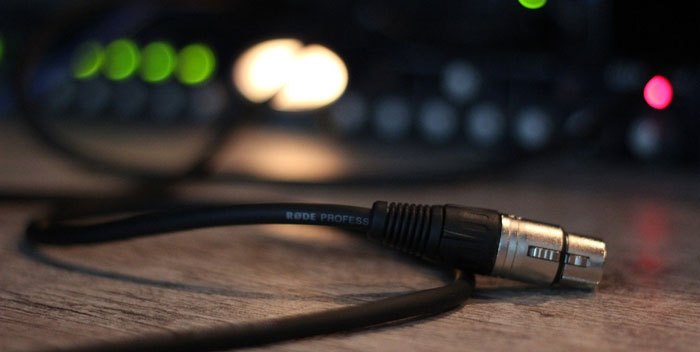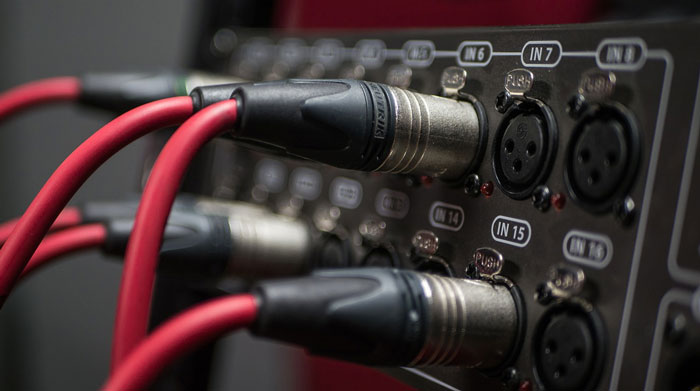Finding the perfect high-fidelity system is not an easy job, especially if you need one that meets all your preferences, provides you with the best sound quality and lasts for a long time. One of the reasons why Hi-Fi systems (generally shortened to Hi-Fi or HiFi) are preferred by many people across the world is that you can build them from the ground up to provide you with what you want. Hi-Fi systems come with three parts: sources, amplifier and speakers, all of which serve a specific purpose and are connected together with Hi-Fi cables.

Image Source: Pixabay
People often neglect the cables and concentrate on the other components. But HiFi cables should get your attention as well, as they also play a huge part in the performance of your high fidelity audio system. Cables can play a huge role in the performance of your audio system, so it’s important you get the right type. To connect the system parts to each other, you are going to need the right interconnects. For the speakers, you’ll need speaker cables, and each of them will influence the overall performance. While the audio cables won’t add to the sound, they will make sure that you get everything your system has to offer.
In other words, using high-end audio cables will provide you with the best sound, and ensure that you get the most of the system you’ve so carefully selected. Even though cables differ in prices – more expensive does not always mean better. In fact, like with all the other parts, cables can come down to preferences, and your own ear. In any case, what you can do before deciding on which HiFi cables to buy is learn as much as you can about each type of cable your system needs to function. If chosen right, as well as used properly, every high-end audio cable can last as long as your high fidelity system.
The Interconnects
For your Hi-Fi system to work, or in other words, for the signal to pass through the Hi-Fi system from one part to another, you need interconnects. These high-fidelity cables fall into two categories – digital and analogue, and each of them comes with several types. The most commonly used types of digital interconnects are digital USB, coaxial, digital RCA, ethernet or streaming cables, etc., and the most commonly used types of analogue cables are RCA and XLR cables.
When it comes to interconnects, not all equipment will perform the same with all cables. To be able to make an educated guess and choose the best option for your HiFi system you need to do extensive research online, ask other enthusiasts for their opinion, talk to professionals at the store, or simply try out different types. Once you have your ideal HiFi audio cables, make sure you keep them as far away as possible from the mains cables and separate them from other cables to keep them untangled.
The Speaker Cables
Responsible for conveying the signal from the source to the speakers, the speaker cables are undoubtedly a vital part of your HiFi system, and as such, they have to be chosen properly. Just like with the interconnects, you should make sure that you buy the best quality you can get within your budget. When buying speaker cables, make sure that you choose the right connectors for your system, because not all of them will fit all amplifiers.

Image Source: Pixabay
Furthermore, once you connect your speaker cable it’s recommended you keep them separated from the other HiFi cables and the mains cabling. Another thing that will have an impact on the sound quality when it comes to the speakers, apart from the speaker positioning, is the length of the cables. Also, the left and the right cables have to be the same length.
The Power Cable
Unlike cables that carry the signals, the cable that brings the power from the main power supply in your home to your equipment’s power supply doesn’t really have a huge effect on the quality of the audio. That being said, it’s vital that the power cable you choose is of good quality and well-constructed nevertheless. So, as long as you make sure that you are buying quality, and you make sure that you connect them properly, you are good to go.
Furthermore, try to avoid switched sockets and gang plugs – if you can. If you can’t, then at least try not to use gang plugs with individual switching. The source components and the pre-amplifier don’t consume a lot of power, so they take a long time to warm up. Because of that, another great way to ensure the best performance of your system is to always keep it switched on, or at least the above-mentioned components. This won’t spend a lot of energy, so it won’t affect your electricity bill but could improve the overall performance.


Comment Policy
Your words are your own, so be nice and helpful if you can. Please, only use your REAL NAME, not your business name or keywords. Using business name or keywords instead of your real name will lead to the comment being deleted. Anonymous commenting is not allowed either. Limit the amount of links submitted in your comment. We accept clean XHTML in comments, but don't overdo it please. You can wrap code in [lang-name][/lang-name] tags.